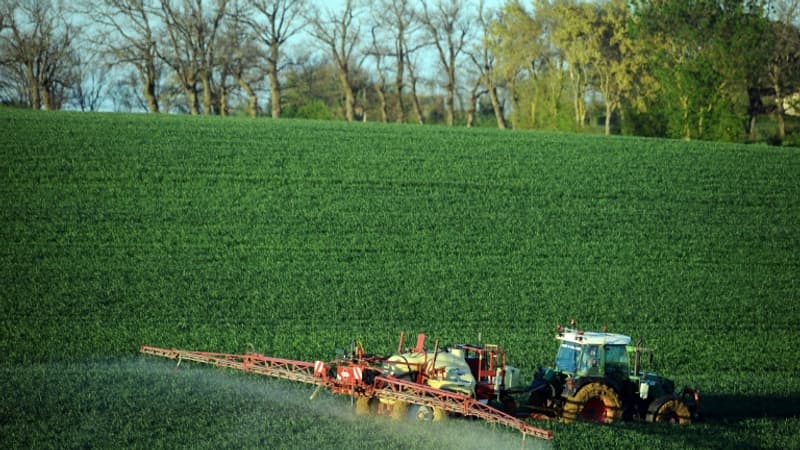Greater aid to farmers, diversification of imports, market transparency: Brussels unveiled on Wednesday its recipes to cushion the impact of rising fertilizer prices, in the context of the energy crisis and the upheavals caused by the war in Ukraine. Prices of synthetic fertilizers (nitrogen, phosphorous or potassium-based) soared after supply disruptions from Russia, which was the world’s largest exporter, and rising prices for gas, essential for its production.
Consequence: “Farmers buy and use less fertilizer, which directly compromises the yields and quality of their next crops”, at the risk of intensifying the inflation of food prices, alarms the European executive, which calls on the states to make use of existing instruments and schemes new measures.
A crisis reserve of 450 million euros
The Commission proposes to withdraw in 2023 from the crisis reserve, endowed with 450 million euros, provided for by the new Common Agricultural Policy (CAP) to help the most affected farmers – after a first use of this reserve in the spring of 2022. But, remember, the Twenty-seven can already support farms and fertilizer producers with massive public aid, thanks to the relaxation of the European framework on State aid, recently extended until the end of 2023.
In this context, the Commission had also proposed in September to eliminate import customs duties on ammonia and urea, crucial components for the manufacture of fertilizers, to help producers and reduce prices. As winter approaches, he asks states to guarantee fertilizer factories “continuous and uninterrupted access to natural gas” in the event of rationing.
An observatory to collect data
The European executive also wants to strengthen market transparency, launching next year “an observatory” to identify data on shares, prices and transactions in each country. At the same time, Brussels is trying to diversify EU suppliers: “Oman, Turkmenistan and Qatar have been identified as alternative sources of nitrogenous fertilizers” for Russia and Belarus, while imports from Egypt and Algeria have already skyrocketed, it notes. The report.
Lastly, the Commission wants to promote the use of organic fertilizers (produced from recycled bio-waste, manure, sludge, etc.): it promises “an action plan for integrated nutrient management” by 2023, and calls for a review of the national CAP implementation plans to further encourage ‘sustainable’ practices and precision farming. Several states ask that regulations on nitrates be relaxed to facilitate the use of fertilizers from manure: “We are studying this possibility but it is a complicated issue,” said the Commissioner for Agriculture, Janusz Wojciechowski.
A plan contrary to agroecology
The Commission’s plan was received coldly by the powerful European agricultural confederation Copa-Cogeca, according to which Brussels “is throwing the ball to the States so that they act through public aid and the strategic plans of the CAP, at the risk to create significant distortions. between countries.
For their part, green MEPs and environmental NGOs denounced a plan to support the synthetic fertilizer industry against agroecology and efforts to reduce inputs: “Our dependence on synthetic fertilizers is destroying agricultural soils, polluting water and the air, and undermines the strategic autonomy of the EU”. said Célia Nyssens of the European Environmental Office.
Source: BFM TV


